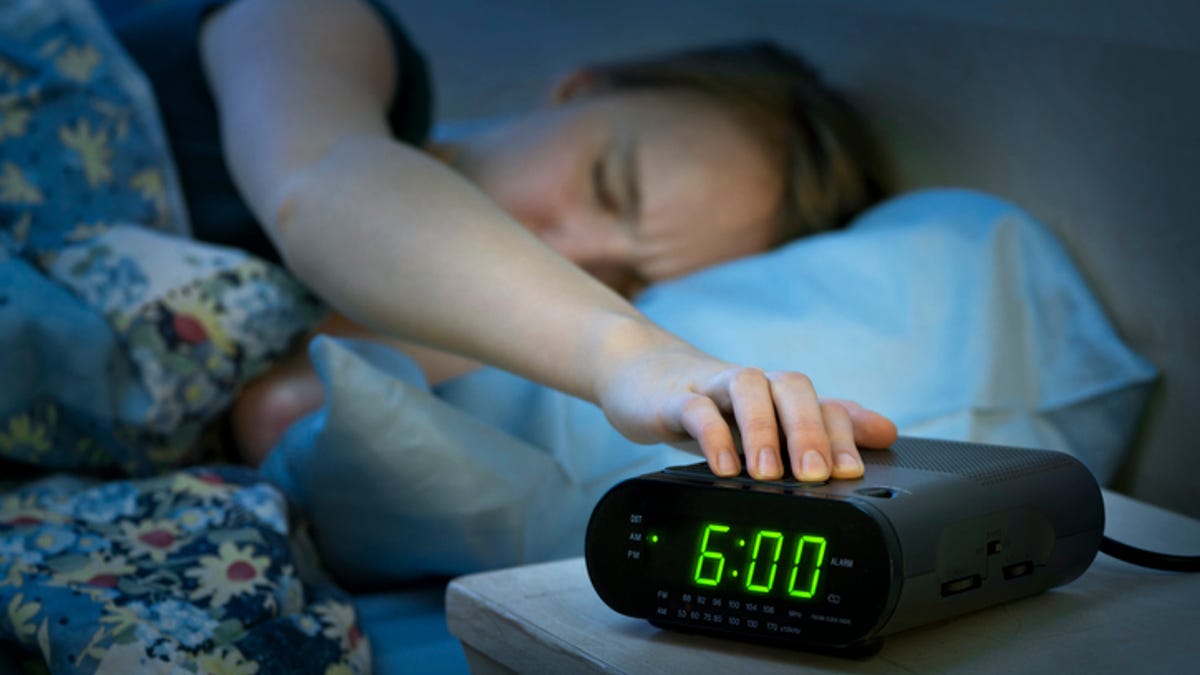Snoozing Your Alarm Is Bad for You. Here's What to Know
Despite the fact that they're built in to our alarms, we probably shouldn't use the snooze button.

Before the pandemic started, I had only one alarm. When it would go off and jolt me awake, I'd roll out of bed and be ready to go. Now I'm a person with three different alarms that I blatantly ignore or snooze, and I know I'm not alone.
Hitting the snooze button feels harmless, but it can become an insidious habit that can wreck your sleep quality. If you've been waking up tired, your snooze button may be to blame. And there's a very simple reason why, as you'll discover below.
For more on sleep, learn how to get the most out of your sleep, which natural sleep aids we recommend and how to recognize if you're getting restful sleep.
Why you shouldn't snooze your alarm
It doesn't help you feel more rested
We snooze our alarm clock to savor just a few extra minutes of sleep. But the sleep you get after snoozing your alarm isn't productive. It's fragmented sleep that might make you more tired. Fragmented sleep also can compromise your attention span, cognitive ability and negatively impact your mood. Even if you didn't get enough sleep, it's better to get up than to roll over and ignore your alarm.
Read more: The Best Mattresses for Quality Sleep
It can mess up your sleep cycle
The sleep you get when you hit the snooze button isn't quality sleep. But it can still lead to oversleeping, disrupting your body's internal clock, or circadian rhythm. Your circadian rhythm is what naturally regulates when you get tired and when you wake up.
Experts recommend that you should go to sleep and wake up within the same timeframe each day. That's because the human body craves routines. If you do this, you're at the end of your REM stage when your first alarm sounds because your body is used to waking up at that time. However, snoozing your alarm lets your body drift back to that REM stage. Then, when your alarm sounds the next time, you're in the middle of the REM stage, which can leave you feeling tired and groggy.
Prolonged snoozing of your alarm essentially confuses your circadian rhythm. Your body isn't sure when it's supposed to go to sleep and get up. This can impact your ability to fall asleep at night as well.
Tips to stop snoozing your alarm
If you're like me and you've fallen into the habit of snoozing your alarm clock -- don't worry. We're not doomed to a life of fatigue. You can make simple lifestyle changes to sleep better and forget about the snooze button.
- Improve your sleep hygiene: Sleep hygiene is a term that refers to everything that goes into sleeping -- your habits, actions and environment. If you're having trouble falling asleep at night, you can make small changes in your sleep hygiene to improve your sleep quality. You can do this by limiting screentime before bed, incorporating relaxing activities into your nightly routine or taking a shower before bed.
- Get seven to nine hours of sleep: The CDC recommends that adults get seven to nine hours each night. Try giving yourself a bedtime to ensure you don't stay up too late.
- Set realistic alarms: If you know you're probably not going to get up at 6:30 to go for that run, turn off that alarm and set a more realistic one. This way, you avoid interrupting your sleep.
- Get out of bed when your alarm goes off: As often as possible, get out of bed or sit up, so you don't fall asleep after you turn off your alarm. You could also move your alarm clock across the room, so you have to get out of bed.
Snoozing your alarm occasionally, while it isn't advisable, won't hurt you. It's when this becomes a habit that it can have significant negative effects on your sleep quality.
For those who have trouble falling asleep, learn how to drift off in other ten minutes, how to tackle your anxiety before bed and why reading before bed is a must.

